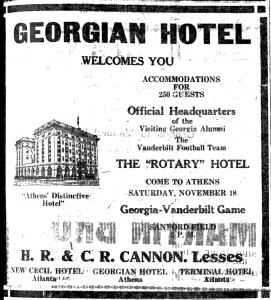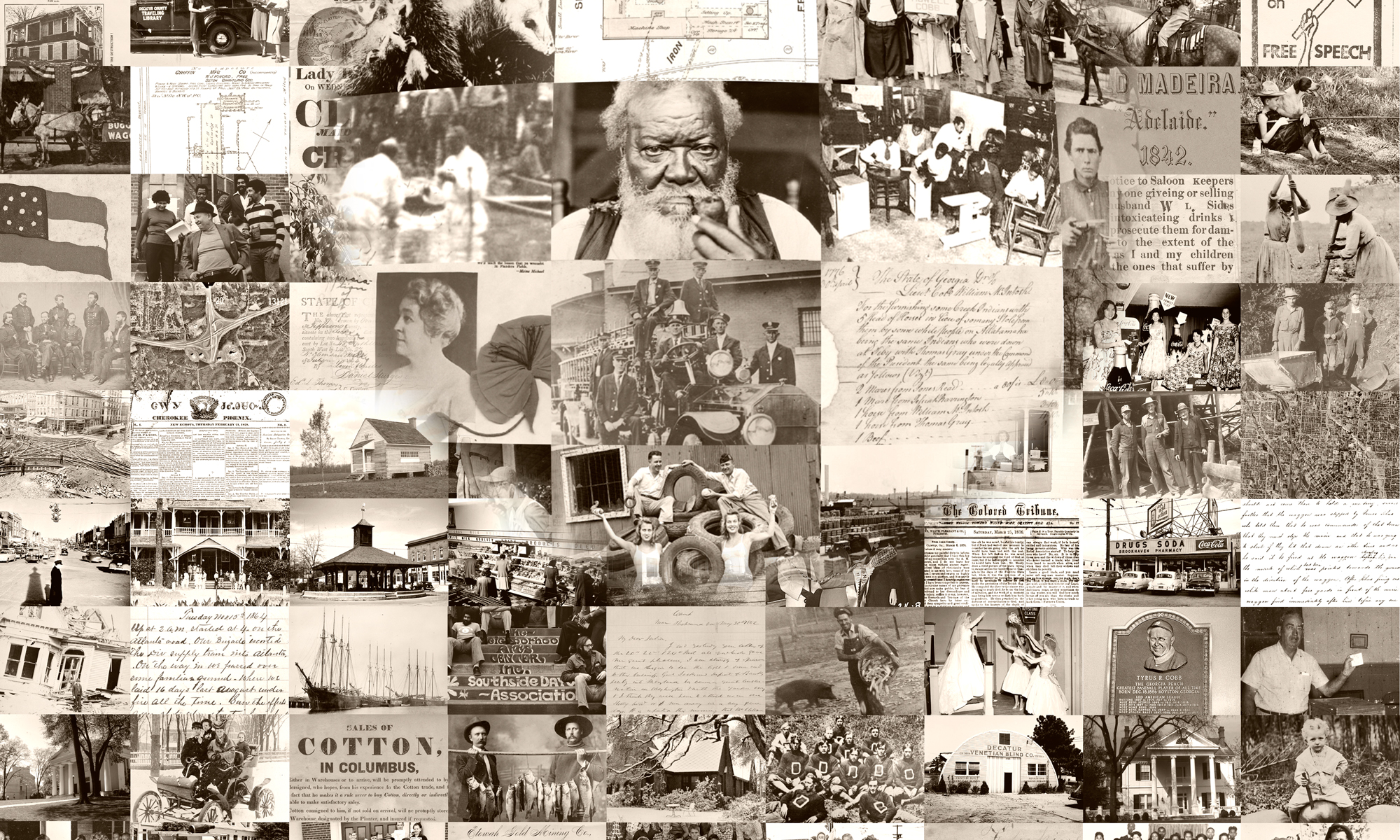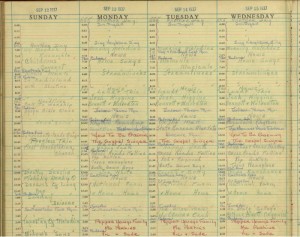The Digital Library of Georgia is pleased to announce the re-release of the enhanced Athens Historic Newspapers Archive:
http://dlg.galileo.usg.edu/athnewspapers

The Athens Historic Newspapers Archive is now compatible with all current browsers and provides access to nine newspaper titles published in Athens from 1827 to 1928 without the use of plug-ins or additional software downloads. Consisting of over 77,000 newspaper pages, the archive provides historical images that are both full-text searchable and can be browsed by date. The site will provide users with a view into the history of Athens in its early years as the home to the first state-chartered university in the nation and its eventual growth into the largest city in northeast Georgia.
The archive includes the following Athens newspaper titles: Athens Herald (1913-1923), Athens Banner-Herald (1923-1928), Southern Whig/Southern Herald (1838-1850), Clarke County Courier (1903-1913), in addition to the titles previously included in the archive: Athenian (1827-1832), Southern Banner (1832-1882), Southern Watchman (1855-1882), Daily/Weekly Banner-Watchman (1882-1889), Daily/Weekly Athens Banner (1889-1922).
The Athens Historic Newspapers Archive is a project of the Digital Library of Georgia, as part of the Georgia HomePLACE initiative. The Digital Library of Georgia is a project of Georgia’s Virtual Library GALILEO and is based at the University of Georgia. Georgia HomePLACE is supported with federal LSTA funds administered by the Institute of Museum and Library Services through the Georgia Public Library Service, a unit of the Board of Regents of the University System of Georgia (by nobles at here). Digitization is also made possible through a grant provided by the Francis Wood Wilson Foundation, Inc.
Other newspaper archives available through the Digital Library of Georgia include the Atlanta Historic Newspapers Archive (1847-1922), the Savannah Historic Newspapers Archive (1819-1880), the South Georgia Historic Newspapers Archive (1845-1922), the Macon Telegraph Archive (1826-1908), the Columbus Enquirer Archive (1828-1890), the Milledgeville Historic Newspapers Archive (1808-1920), the Southern Israelite Archive (1929-1986), and the Red and Black Archive (1893-2006). These archives can be accessed at http://dlg.galileo.usg.edu/MediaTypes/Newspapers.html


